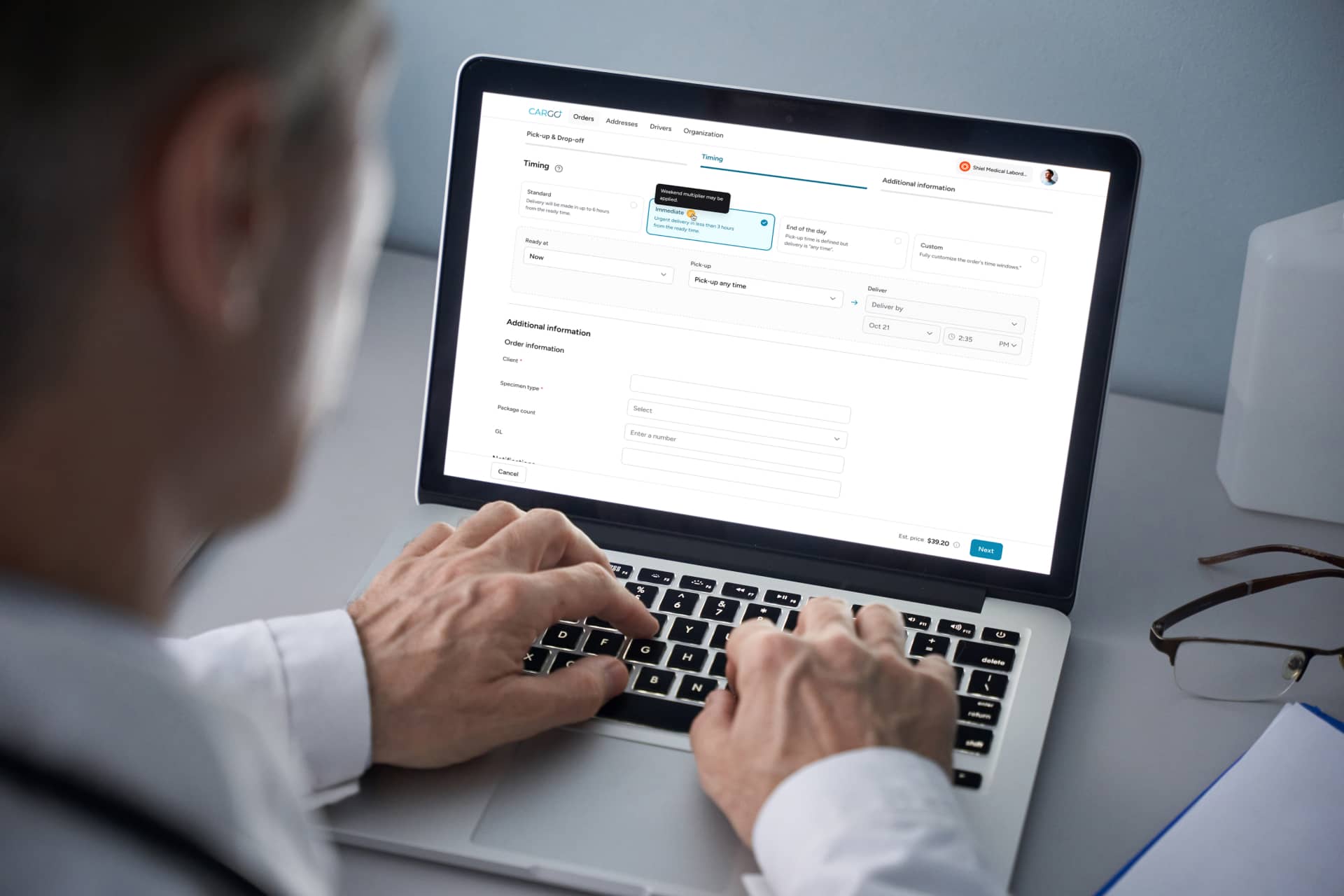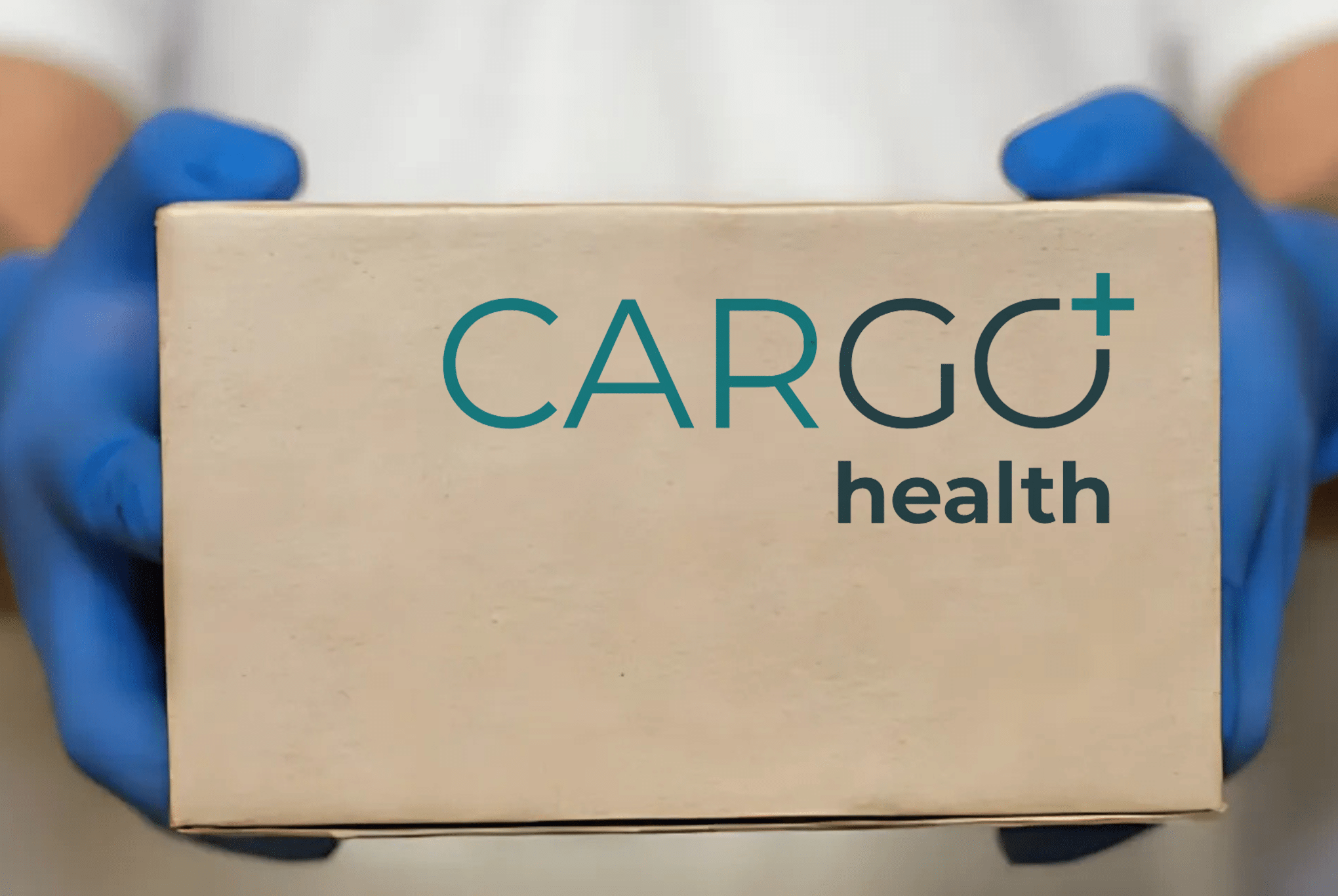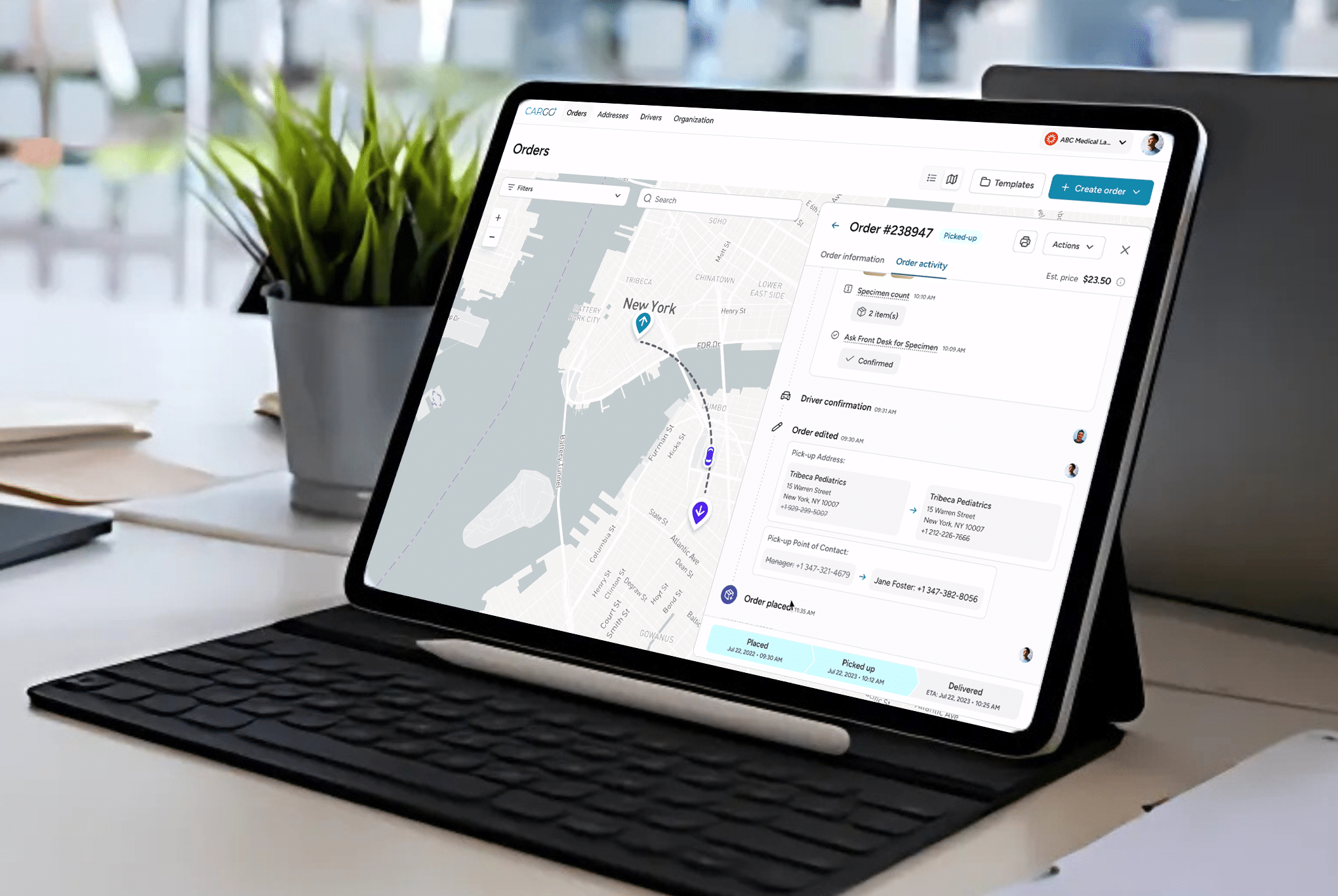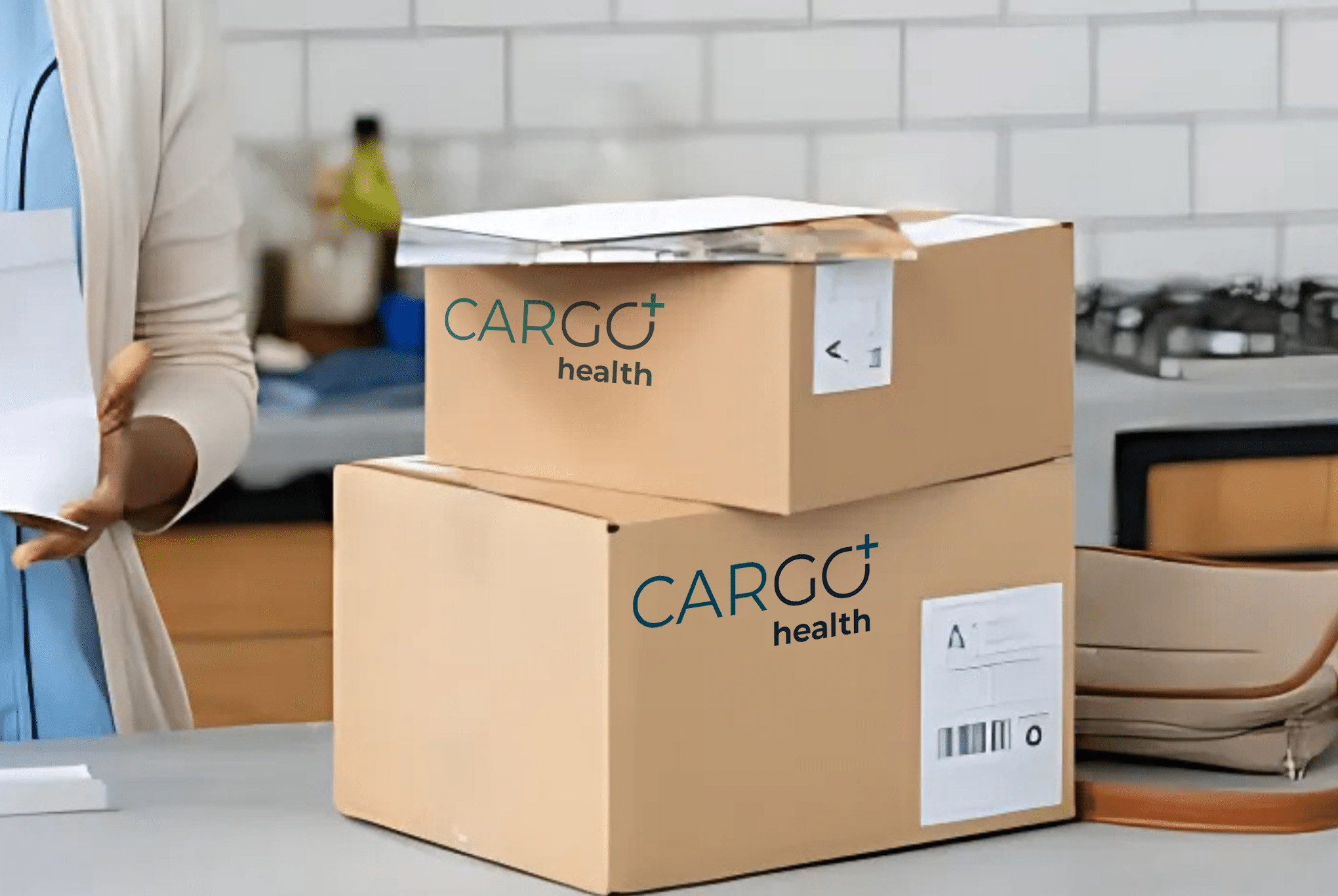The Art and Science of Scheduling in Medical Courier Services

In the labyrinth of healthcare logistics, the scheduling of medical courier services stands as a critical function, ensuring that life-saving medical specimens and supplies reach their destinations promptly and securely. The complexity of this task is heightened by the intrinsic nature of the items transported, the urgency associated with them, and the stringent regulatory environment governing their movement. This article delves deep into the art and science of scheduling within the medical courier domain, uncovering the advanced methodologies, technological integrations, and strategic nuances that define excellence in this field.
The Critical Nature of Medical Courier Services
Medical courier services occupy a unique niche within the logistics industry, transporting a myriad of items critical to patient care and medical research. These include, but are not limited to, blood and tissue samples, organs for transplant, medical equipment, and pharmaceuticals. The time-sensitive nature of these deliveries is paramount; a delayed organ transplant or a lost blood sample can have catastrophic consequences, making reliability and speed the cornerstones of medical courier services.
Navigating this landscape requires an intimate understanding of the healthcare sector, a robust network of vehicles and personnel, and a resilient scheduling system capable of adapting to the unpredictable nature of medical deliveries. The regulatory requirements add an additional layer of complexity, demanding meticulous documentation, secure handling, and proper transportation conditions. For instance, organs for transplant and blood samples require temperature-controlled environments, and any deviation from the prescribed conditions can render them unusable.
Scheduling Challenges in Medical Courier Services
The scheduling of medical courier deliveries is a multifaceted challenge, influenced by a myriad of factors. Traffic conditions, vehicle availability, driver schedules, last-minute requests, and environmental conditions all play critical roles in shaping the scheduling matrix.

Optimizing routes for speed and safety is a constant challenge, particularly in urban environments with unpredictable traffic patterns. Advanced GPS systems and route optimization software help address this challenge, but they require constant updates and real-time traffic data to function effectively. Vehicle and personnel availability is another critical aspect; maintaining a balance between having enough resources to cover all deliveries and not overextending the fleet is a delicate balancing act.
Last-minute and emergency requests are commonplace in the medical field, and a scheduling system must be agile enough to accommodate these without disrupting previously scheduled deliveries. This requires a deep pool of resources and a robust communication network to reassign deliveries and reroute vehicles as needed. Weather and environmental conditions further complicate scheduling, as they can cause delays and necessitate route changes. A resilient scheduling system must anticipate these challenges and have contingencies in place to mitigate their impact.
Advanced Scheduling Strategies
To navigate the complex landscape of medical courier services, advanced scheduling strategies are employed, leveraging cutting-edge technology and innovative methodologies.
Dynamic scheduling is one such strategy, enabling real-time adjustments to the schedule as conditions change. This ensures that resources are allocated efficiently, and deliveries are rerouted as needed to avoid delays. Predictive analytics plays a crucial role in this, analyzing historical data to identify patterns and predict future scheduling needs. This helps in pre-emptive resource allocation, ensuring that enough vehicles and personnel are available to cover anticipated demand.
Artificial intelligence and machine learning algorithms enhance these capabilities, learning from past patterns and continually refining the scheduling process. These technologies can predict potential delays, suggest optimal routes, and allocate resources in the most efficient manner possible, ensuring that every delivery reaches its destination promptly.
Technological Integration
In the realm of medical courier services, technological prowess is not just an asset; it is an imperative. The integration of advanced technologies facilitates a seamless, efficient, and reliable scheduling process, addressing the complex demands of medical deliveries.
GPS and Route Optimization
The heart of any delivery system is its ability to find and traverse the most efficient paths. GPS technology and route optimization software work in tandem to navigate through unpredictable traffic, road closures, and other logistical hurdles. Medical courier services need real-time updates and historical data to make intelligent routing decisions. For example, integrating traffic pattern data can help predict potential delays and suggest alternative routes proactively.
Fleet Management Systems
Maintaining a fleet of vehicles in optimal condition is vital. Fleet management systems offer a comprehensive view of each vehicle’s status, including maintenance schedules, availability, and current location. This data is crucial for effective scheduling, ensuring that the right resources are allocated to each delivery. These systems also track driver work hours, helping to manage fatigue and ensuring compliance with labor laws and safety standards.
Mobile Applications and Communication Tools
In a field where seconds count, seamless communication is paramount. Mobile applications for drivers and dispatchers facilitate real-time updates, route changes, and delivery confirmations. These tools enhance transparency, accountability, and efficiency, ensuring that every stakeholder in the delivery process is informed and empowered to act.

The integration of these technologies creates a robust ecosystem, capable of handling the complexities of medical courier scheduling. It ensures that resources are optimized, routes are efficient, and deliveries are made swiftly and securely, upholding the high standards required in healthcare logistics.
Human Element in Scheduling
While technology plays a crucial role in optimizing scheduling, the human element remains irreplaceable. The expertise, judgment, and adaptability of individuals involved in the scheduling process are paramount, especially when dealing with unforeseen challenges and high-pressure situations.
Building Relationships and Trust
Strong relationships with healthcare facilities, personnel, and other stakeholders are crucial. Trust is built over time, through consistent delivery of reliable service. This trust enhances communication, ensuring that crucial information is shared promptly and accurately, facilitating better scheduling decisions.
Training and Development
Investing in the training and development of scheduling personnel is essential. They need to be adept at using scheduling software, interpreting data, and making informed decisions under pressure. Continuous learning opportunities, workshops, and certification programs help in keeping their skills sharp and up-to-date.
Leveraging Human Judgment
In complex and high-stakes scenarios, human judgment becomes invaluable. Machines can analyze data and suggest options, but it takes a human to weigh the nuances, understand the broader context, and make a final decision. This blend of technological aid and human expertise ensures a balanced and resilient scheduling process, capable of handling the intricacies of medical courier services.
Continuous Improvement and Adaptation
The medical courier industry is ever-evolving, and so must the strategies and processes used in scheduling. A commitment to continuous improvement ensures that services remain efficient, reliable, and aligned with industry standards.
Utilizing Data for Performance Analysis
Performance metrics and data analysis are crucial for identifying areas of improvement. Tracking delivery times, success rates, and customer feedback provides a clear picture of service quality and helps pinpoint specific areas that require attention.
Embracing Innovation and Change
The willingness to adapt and embrace new technologies and methodologies is essential. As the industry evolves, so do the tools and strategies available for scheduling. Staying abreast of these developments ensures that medical courier services remain competitive and continue to offer top-notch service.
Managing Risks and Contingencies
The nature of medical courier services involves inherent risks and uncertainties, and an adept scheduling system must be equipped to manage and mitigate these potential issues.
Identifying and Assessing Risks
Risk management begins with the identification and assessment of potential risks, from vehicle breakdowns and traffic jams to natural disasters. Understanding the probability and impact of these risks is crucial for developing effective contingency plans.
Developing Contingency Plans
Once risks are identified, the next step is to develop contingency plans. This could involve maintaining a reserve fleet of vehicles, establishing backup routes, or creating a network of alternative transportation options. The goal is to ensure that, even in the face of unforeseen challenges, deliveries can be completed without significant delays.
Continuous Monitoring and Response
Effective risk management requires continuous monitoring of potential risks and a rapid response mechanism. Technologies such as GPS tracking and real-time weather updates play a crucial role in providing the necessary situational awareness, allowing for swift decision-making and re-routing in case of an emergency.
Learning from Incidents
Every incident, whether a near miss or a significant disruption, provides valuable learning opportunities. Analyzing these incidents, understanding what went wrong (or right), and adjusting processes and plans accordingly helps in building a more resilient and reliable scheduling system.
Benchmarking and Industry Best Practices
Staying competitive and ensuring excellence in medical courier services requires an understanding of industry benchmarks and best practices.
Understanding Industry Benchmarks
Benchmarking involves comparing one’s own performance metrics with those of industry leaders or standards. This helps in identifying areas of strength and potential improvement, guiding strategic decisions and investments.
Adopting Best Practices
Leveraging the knowledge and proven strategies of industry leaders can drive efficiency and excellence. Best practices could involve specific scheduling techniques, technology adoption, or training programs. Adopting these practices ensures that the service is in line with, or ahead of, industry standards.
Continuous Learning and Adaptation
The medical courier industry is dynamic, and staying informed about the latest trends, technologies, and methodologies is vital. Encouraging a culture of continuous learning and adaptation ensures that the scheduling system evolves and improves over time, maintaining a competitive edge.
Final Thoughts
The medical courier industry plays a crucial role in healthcare logistics, where precision, reliability, and speed are non-negotiable. This article has provided a comprehensive exploration of the art and science of scheduling within this domain, delving into the challenges, strategies, technologies, and best practices that define excellence. For professionals in the field, it serves as a rich resource and guide, aiming to foster innovation, efficiency, and unwavering commitment to this critical service.

Leveraging Excellence with carGO Health: Your Premier Medical Courier Partner
In the intricate landscape of medical courier services, where precision, speed, and reliability are paramount, carGO Health stands out as a beacon of excellence and innovation. As we have explored the multifaceted dimensions of scheduling in medical courier services, it becomes evident that choosing the right partner is crucial. carGO Health embodies the pinnacle of proficiency, offering unparalleled services tailored to meet the rigorous demands of healthcare logistics.
Unrivaled Expertise and Innovation
With a rich history of serving a diverse clientele, including medical laboratories, healthcare providers, hospitals, and pharmacies, carGO Health has cemented its position as the leading on-demand medical courier platform. The team’s expertise is not just limited to delivering medical specimens, medications, or blood products; it extends to understanding the critical nature of each delivery, ensuring that every package reaches its destination promptly and securely.
Seamless Integration and Transparency
carGO Health’s easy order placement, transparent tracking, and comprehensive order history provide clients with a seamless experience from pickup to delivery. The platform’s innovative approach ensures that every stakeholder in the delivery process is equipped with real-time information, fostering transparency and accountability.
Comprehensive Service Offering
Whether it’s on-demand, scheduled, or recurring deliveries, carGO Health’s extensive service offerings are designed to cater to the unique needs of various sectors within the healthcare industry. From hospitals and health systems to biotech firms, pharmacies, and more, carGO Health’s adaptability and comprehensive service range make it a one-stop solution for all medical courier needs.
A Commitment to Continuous Improvement
In line with the principles highlighted in this article, carGO Health is steadfast in its commitment to continuous improvement and adaptation. The platform continually embraces innovation, ensuring that its scheduling systems, technologies, and processes remain at the forefront of the industry, delivering excellence and reliability at every turn.
Partnering with Excellence
Choosing carGO Health as your medical courier partner means aligning with a leader in the field, committed to delivering excellence, one patient at a time. The synergy of technological innovation, comprehensive services, and unwavering dedication to precision and speed makes carGO Health the ideal choice for healthcare logistics.
Take the Next Step with carGO Health
We invite you to experience the pinnacle of medical courier services with carGO Health. Place your trust in a partner that understands the critical nature of your deliveries and is dedicated to ensuring they reach their destination swiftly and securely. Visit our platform, explore our services, and take the first step towards excellence in healthcare logistics. Let carGO Health be your ultimate one-stop solution for all your medical courier needs. Contact Us today to get started.








